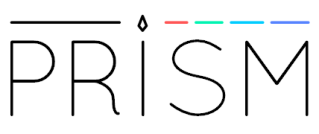I’m writing just ahead of the main deadline for proposals to DH 2013, the primary conference of the international digital humanities community. It is my great privilege to chair the program committee for this year’s conference, which will be held in Lincoln, Nebraska. The PC are the stalwarts who design and coordinate peer review for the conference, pitch in to cover for delinquent reviewers, make final decisions on its intellectual program, and partner with local organizers in selecting invited speakers (we’ll look forward to a keynote from David Ferriero, chief Archivist of the United States, and it’s a Busa Award year, so we’ll honor and hear from the wonderful Willard McCarty).
 “DH” is a new name for an old gathering. When I first encountered it in the 1990s the conference was called ACH/ALLC, after two professional associations (themselves dating to the ’70s) that had been sponsoring a joint meeting on computer-assisted humanities scholarship since 1989. The Digital Humanities name came in the mid-aughties, with the formation of a broader Alliance of Digital Humanities Organizations. ADHO has expanded, over time, to include Canadian and Australasian DH associations, as well as an international consortium of digital labs and centers. Shortly, we’ll welcome a Japanese association to the fold as well. (For a whirlwind history of big moments in DH, see John Unsworth’s “What’s ‘Digital Humanities’ and How Did It Get Here?“)
“DH” is a new name for an old gathering. When I first encountered it in the 1990s the conference was called ACH/ALLC, after two professional associations (themselves dating to the ’70s) that had been sponsoring a joint meeting on computer-assisted humanities scholarship since 1989. The Digital Humanities name came in the mid-aughties, with the formation of a broader Alliance of Digital Humanities Organizations. ADHO has expanded, over time, to include Canadian and Australasian DH associations, as well as an international consortium of digital labs and centers. Shortly, we’ll welcome a Japanese association to the fold as well. (For a whirlwind history of big moments in DH, see John Unsworth’s “What’s ‘Digital Humanities’ and How Did It Get Here?“)
DH is my home conference — the (only) one I look forward to all year, and have attended most religiously since I was a grad student. This event, and the welcoming, rollicking, inventive, pragmatic, learned, egalitarian, global humanities computing community that coalesces around it, are without a doubt the reason I finished my doctorate, stayed in the field and in the academy (not, interestingly, self-identical in DH), and do all the things I do at places like the Scholars’ Lab, ADHO, ACH, NINES, SCI, RBS, MediaCommons, and MLA.
So, I’m pretty invested in getting things right as conference chair.
I’ve reviewed for DH since I was a child (well, almost), served as a program committee member for the conference twice before, was its vice-chair in 2010, and have had helpful conversations with several of our past smart, thoughtful, hard-working chairs — so I know this weekend, as proposals flood in and I gear up the system for the next phase, is one of several moments in the process when I can expect to be biting my nails. To assuage my nerves, communicate some of the good work the PC has been doing so far, and to make things a little less opaque for everybody, I’m writing this post. The cats in my title need herding. The ship is a slow one to turn around. Continue reading “cats and ships”


